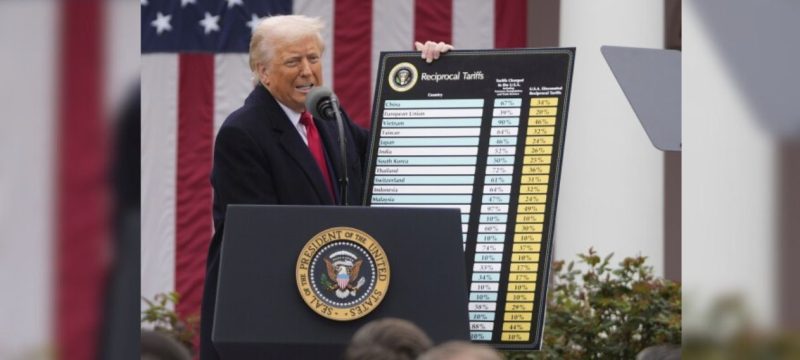A U.S. trade court ruled on Wednesday that former President Donald Trump’s broad imposition of tariffs was unlawful, stating that his administration had overstepped its legal boundaries by enforcing import duties without congressional consent.
In a potentially transformative judgment for American trade policy, the Court of International Trade concluded that Trump’s application of the International Emergency Economic Powers Act (IEEPA) as justification for sweeping tariffs violated federal law. The three-judge panel determined that the U.S. Constitution grants exclusive power over foreign commerce to Congress, and this authority cannot be overridden using presidential emergency powers.
Read more: EU Postpones 50% Tariff as Trump and von der Leyen Agree to Renew Trade Talks
“The court does not evaluate whether the President’s tariff strategy was beneficial or effective,” the panel clarified. “It was disallowed solely because federal law does not support such action.”
The judges issued a permanent injunction, nullifying all blanket tariffs imposed by Trump under IEEPA since January. They ordered the administration to revise its tariff orders within 10 days. In response, the administration quickly filed an appeal, questioning the court’s legal jurisdiction.
However, the ruling doesn’t affect tariffs applied under other laws — such as those targeting steel, aluminum, and automobiles — which were implemented under separate legal frameworks.
Widespread Impact
The Manhattan-based Court of International Trade, which specializes in customs and trade matters, said that plaintiffs, including small businesses and 12 U.S. states, demonstrated that the tariffs inflicted financial harm.
The case stemmed from two lawsuits: one brought by the Liberty Justice Center representing small importers, and another filed by a group of states led by Oregon Attorney General Dan Rayfield.
Rayfield celebrated the decision, calling it a “clear statement that trade laws can’t be manipulated by presidential impulse.” Plaintiffs included a New York wine importer and a Virginia company producing educational kits, both of whom said the tariffs disrupted their operations and increased costs.
The court added, “If the Tariff Orders are illegal for these plaintiffs, they are illegal for everyone.”
Economic and Political Repercussions
Markets responded positively to the ruling, with the U.S. dollar rising and stock markets climbing in both the U.S. and Asia. Analysts said the verdict brings clarity to global trade relations that had been shaken by Trump’s tariff-heavy policies.
A White House spokesperson defended the tariffs, arguing that the U.S. trade deficit amounted to a national crisis that had hurt American communities and weakened industrial growth.
“It’s not for unelected judges to dictate how to respond to a national emergency,” said Kush Desai, then a White House representative.
Trump had cited the ballooning $1.2 trillion U.S. trade deficit to justify tariffs ranging from 10% to over 50% on imported goods. He claimed the tariffs would encourage domestic manufacturing and job growth.
Critics, however, said the duties led to higher costs for U.S. businesses, disrupted supply chains, and prompted retaliatory tariffs from other countries. Negotiations with major trading partners, such as China and the EU, were often hampered by this tariff-first stance.
Though some of these tariffs were adjusted in mid-2025 to facilitate trade negotiations, the legal basis behind them has now been struck down by the judiciary.
Further Legal Battles Ahead
The administration is expected to escalate the case to the U.S. Court of Appeals for the Federal Circuit, and experts say it may ultimately reach the Supreme Court due to its constitutional relevance.
During the hearings, the Department of Justice argued for the lawsuits’ dismissal, claiming that plaintiffs hadn’t yet paid the tariffs and that only Congress had standing to challenge a national emergency declaration.
Trump’s administration was the first to apply IEEPA as a tool to levy tariffs, diverging from its typical use for asset freezes or sanctions against foreign actors.
Currently, at least five other legal challenges to Trump-era tariffs are still pending in U.S. courts.









